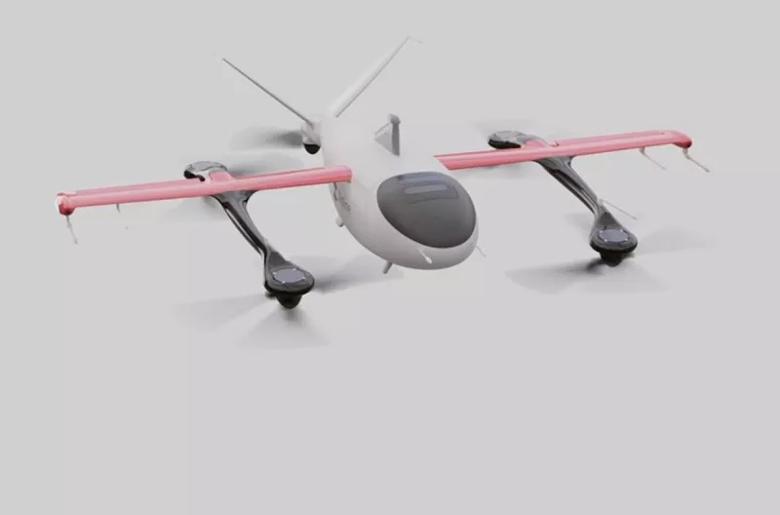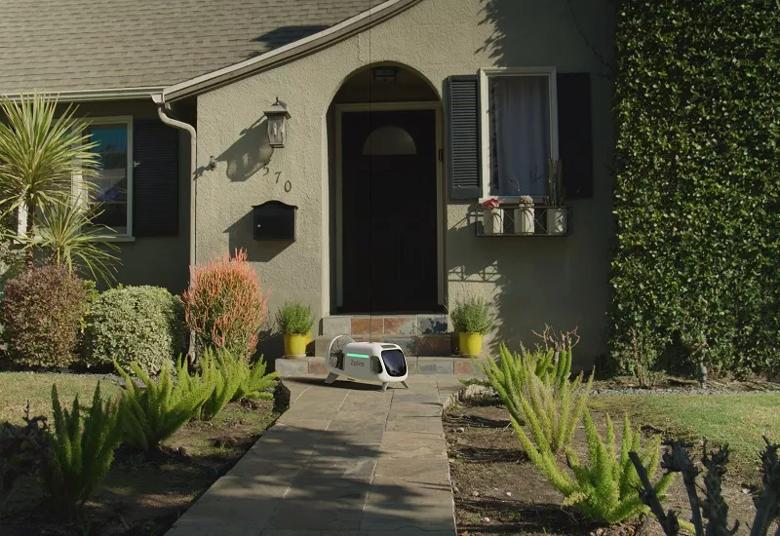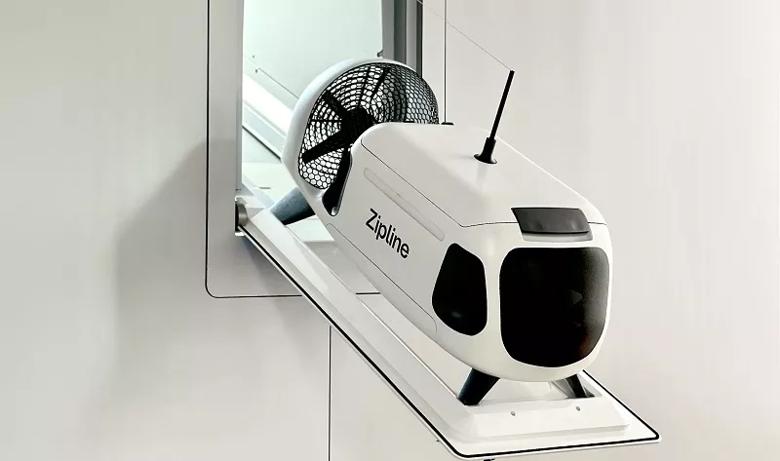Cleveland Clinic will offer rapid, pinpoint airborne transport of medications and other medical items

Image content: This image is available to view online.
View image online (https://assets.clevelandclinic.org/transform/bb128f24-e399-4cb2-87cd-2b8e42e325d0/23-CCC-4375920-Zipline-drone-delivery-650x450-1_jpg)
23-CCC-4375920 Zipline drone delivery 650×450
Cleveland Clinic plans to use drones to deliver certain medications directly to patients’ homes, starting in 2025.
Advertisement
Cleveland Clinic is a non-profit academic medical center. Advertising on our site helps support our mission. We do not endorse non-Cleveland Clinic products or services. Policy
Initially, the service will be used to transport specialty medicines and other prescriptions to patients’ homes from more than a dozen Cleveland Clinic locations across Northeast Ohio.
Eventually, the program will expand to include delivery of lab samples, prescription meals, medical and surgical supplies, and items for hospital-at-home services. Most of these shipments currently are sent via automotive courier or other ground delivery methods.
“We are always looking for solutions that are cost effective, reliable and reduce the burden of getting medications to our patients,” said Bill Peacock, Chief of Operations at Cleveland Clinic. “Not only are deliveries via drone more accurate and efficient, the technology we are utilizing is environmentally friendly. The drones are small, electric and use very little energy for deliveries.”
Cleveland Clinic will use drone company Zipline’s Platform 2 system, which can execute precise deliveries to dense urban areas and completes a 10-mile delivery in about 10 minutes. Docking/charging stations and loading portals for the drones will be added at several of Cleveland Clinic’s Northeast Ohio facilities.
When a prescription is ready, a Cleveland Clinic technician will load the drone. The small autonomous aircraft will undock, fly at an altitude of more than 300 feet to a patient’s home, hover and deploy a delivery droid that descends on a tether. The quiet, steerable droid can touch down in areas as small as the front steps of a residence or a backyard patio table, where it releases its package. The droid then ascends the tether to reunite with the drone for the return flight.
Advertisement
Patients will be able to track their deliveries in real time using an app.
“Zipline has been focused on improving access to healthcare for eight years. We’re thrilled to soon bring fast and convenient delivery to Cleveland Clinic patients,” said Keller Rinaudo Cliffton, the company’s co-founder and CEO.

Image content: This image is available to view online.
View image online (https://assets.clevelandclinic.org/transform/5d2d6434-36c6-4e0a-934b-f8fc358d4639/23-CCC-4375920-Zipline-drone-in-flight-800x550-1_jpg)
Flying at an altitude of more than 300 feet, Zipline's Platform 2 drone can complete a 10-mile delivery in about 10 minutes. Credit: Zipline

Image content: This image is available to view online.
View image online (https://assets.clevelandclinic.org/transform/f906c994-c883-4b6a-9ad7-59ca4d4c5900/23-CCC-4375920-Zipline-drug-delivery-drone-800x550-1_jpg)
Zipline's Platform 2 drone carries a delivery droid in its underbelly. While the drone hovers, the droid descends on a tether. Credit: Zipline

Image content: This image is available to view online.
View image online (https://assets.clevelandclinic.org/transform/cfd38233-6d46-4d4d-a2a7-e6b4b7634c3e/23-CCC-4375920-Zipline-drug-home-delivery-800x550-1_jpg)
Descending on a tether and steered by a propeller, the droid can touch down in a small area like a home's entryway. Credit: Zipline

Image content: This image is available to view online.
View image online (https://assets.clevelandclinic.org/transform/752738fd-7886-49ae-9e08-4925fced6df3/23-CCC-4375920-Droid-in-loading-bay-800x550-1_jpeg)
The droid enters a loading bay to pick up its delivery payload. Credit: Zipline
In 2024, Cleveland Clinic will begin work with government officials to ensure compliance with all safety and technical requirements for drone delivery and will start to install the docks and loading portals for the drone system.
“This technology will help us achieve our goal to expand our pharmacy home delivery program and provide easier, quicker access to prescribed medications in our communities,” said Geoff Gates, Cleveland Clinic’s Senior Director of Supply Chain Management.
The system and aircraft are designed with multiple layers of safety, including preflight inspections and real-time monitoring by operations teams.
Zipline began in 2016, using catapult-launched long-distance drones to deliver lifesaving blood and medical products to remote areas in Rwanda, where transportation networks are unreliable and logistical challenges are common. Today, the company’s drones operate in seven countries across three continents, serving millions of people per day.
One of those countries is Ghana, where the national government contracted with Zipline in 2019 to improve the distribution of health products to residents, especially in rural areas. By the end of 2022, Zipline’s drones had transported more than 6 million vaccine doses and 2.4 million medical products.
Advertisement
A 2023 study of Zipline’s effectiveness in delivering vaccines in Ghana’s Western North Region found that health facilities served by the drones reported significantly shortened out-of-stock periods and fewer missed opportunities for vaccination, with delivery times less than one hour. Vaccination rates in drone-supplied areas significantly increased and infection rates declined, the researchers determined, potentially saving more than 700 lives.
Advertisement
Advertisement
Emerging evidence suggests a patient-specific approach
Logistic feasibility supported for treating obstructive HCM under the REMS program
Multidisciplinary care for patients with immune-related adverse events
Additional analyses of the two trials presented at 2023 ESC Congress
Looking at the real-world impact and the future pipeline of targeted therapies
End-of-treatment VALOR-HCM analyses reassure on use in women, suggest disease-modifying potential
Study reveals key differences between antibiotics, but treatment decisions should still consider patient factors
Digital “tripwires” detect and respond to malicious activity, boosting cybersecurity maturity